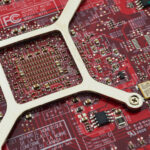Expert Oil Reservoir Service: Clean & Effective
Ever pondered the impact of ignoring grease interceptor maintenance on your kitchen? The consequences can be extensive, impacting not only compliance but also the heart of your dining establishment’s functions. Expert grease tank service is crucial for a sanitary, efficient industrial kitchen. It guarantees grease interceptors function effectively, reducing the likelihood of costly emergency fixes and plumbing issues. This article delves into the importance of grease tank service and its part in enhancing kitchen efficiency.
Understanding the Significance of Grease Reservoir Maintenance
A grease interceptor’s upkeep is essential for a industrial culinary environment’s performance. These devices intercept fats, oils, and greases (FOG) generated during meal preparation and cooking. Without adequate maintenance, these materials can lead to severe plumbing and ecological issues.
Role of Grease Traps in Commercial Culinary Environments
In a dynamic culinary environment, the amount of fats, oils, and grease is considerable. Grease interceptors act as the primary barrier, stopping these substances from clogging the waste system. Effective food service grease interceptor maintenance guarantees they trap FOG efficiently, decreasing the chance of clogged pipes. Regular inspections and servicing are essential to ensure their best performance.
Results of Neglecting Grease Interceptor Upkeep
Ignoring grease septic tank cleaning companies near me can result in several adverse consequences, including:
- Clogged plumbing systems, leading to expensive backups
- Unpleasant odors that may affect customer experience
- Potential fines from local authorities for non-compliance
- Increased upkeep costs due to accumulated damage
Regular fats oils and grease (FOG) removal and upkeep prevents these problems. It also improves the food industry’s efficiency. A preventative grease interceptor upkeep plan can yield long-term savings and better kitchen functions.
Benefits of Routine Grease Trap Cleaning
Routine grease trap cleaning is essential for any commercial kitchen’s seamless functionality. It enhances culinary efficiency and guarantees adherence to health standards. By maintaining grease interceptors, businesses avoid the risks of unsanitary conditions and possible fines.
Improved Culinary Performance and Compliance
Proper grease interceptor upkeep is key to a commercial kitchen’s efficiency. Grease accumulation can block drainage systems, leading to costly plumbing issues. Routine cleaning supports efficient waste disposal, upkeeping sanitation and helping businesses adhere to health regulations.
Cost Savings Through Proactive Maintenance
Proactive maintenance for grease interceptors offers substantial lasting benefits. Routine upkeep avoids costly emergency fixes and downtime. By choosing for comprehensive grease disposal services, restaurants can efficiently handle waste disposal. This strategy reduces operational disruptions and supports sustainable waste management.
Grease Tank Maintenance: What to Anticipate
When you schedule a grease reservoir maintenance, understanding what to anticipate guarantees a smooth procedure. The maintenance begins with a comprehensive assessment to evaluate the grease interceptor’s state. This step is essential for deciding the required actions before emptying the grease storage system.
Summary of the Servicing Process
The servicing procedure includes several key steps to ensure optimal functionality. Technicians initially conduct evaluations to determine the next steps. Then, they remove solid waste, cooking oils, and other deposits. Methods like bio-remediation of cooking oils are used to safely break down fats and oils. This complete strategy improves system functionality and minimizes the chance of backups in commercial culinary environments.
Frequency of Service Guidelines
The frequency of grease trap maintenance differs widely, depending on elements like the system’s size and the volume of fats, oils, and greases (FOG) generated. Dining establishments and comparable establishments usually require monthly servicing and grease storage system pumping. Companies with lower FOG generation might schedule maintenance quarterly. Following these guidelines guarantees compliance and avoids costly plumbing issues.
| Establishment Type | Recommended Service Frequency | Primary Factors |
|---|---|---|
| Dining Establishments | Every Month | Significant volume of FOG production |
| Coffee Shops | Every 1-3 months | Moderate FOG production |
| Quick-Service Restaurants | Every Month | Consistent high amount of fry oil collection |
| Boutique Bakeries | Quarterly | Reduced FOG production |
Selecting the Right Grease Interceptor Maintenance Provider
For establishments, picking a reliable grease reservoir service company is crucial to maintaining effective grease management. Certifications and local expertise are crucial in guaranteeing your grease upkeep needs are effectively met.
Key Certifications to Consider
When evaluating prospective companies, focus on these key certifications:
- Experience in the restaurant industry
- Accreditations from recognized industry bodies
- Understanding of local regulations and compliance standards
- Favorable customer feedback and testimonials
Importance of Local Expertise and Equipment
Local expertise in a grease trap service provider can greatly enhance maintenance efficiency. Providers acquainted with your area’s specific issues and laws are ideal. They should also have the latest tools for efficient grease system management. This ensures prompt and effective grease reservoir upkeep.
Customer Service and Accessibility
Exceptional customer support is crucial when choosing a grease reservoir service company. They should be responsive to inquiries and offer flexible timings to accommodate your needs. Providers who prioritize customer satisfaction guarantee you can contact them when needed.
| Criteria | Reason It Is Important |
|---|---|
| Expertise | Ensures familiarity with dining grease upkeep challenges. |
| Certifications | Ensures compliance to industry standards for protection and efficiency. |
| Local Knowledge | Helps navigate local regulations and unique operating circumstances. |
| Technology | Improves efficiency in managing grease systems. |
| Customer Service | Ensures prompt and quick assistance for your grease upkeep needs. |
Price of Grease Trap Cleaning and Factors
The price of servicing a grease interceptor varies significantly based on several elements. These include the trap’s size, the grease accumulation level, and the regularity of service. Understanding these elements assists dining establishment proprietors and kitchen supervisors in planning properly. It also helps them take informed choices about grease management.
Regular cleaning schedules are crucial for maintaining compliance with health standards. They also prevent costly plumbing issues down the line. Many establishments find that routine lowers operational interruptions. This leads to enhanced kitchen performance.
For customized solutions, dedicated companies offer bespoke estimates depending on a establishment’s specific needs. Spending in these services ensures a more sanitary kitchen space. It also supports long-term success, protecting your business’s reputation in the cutthroat restaurant industry.


